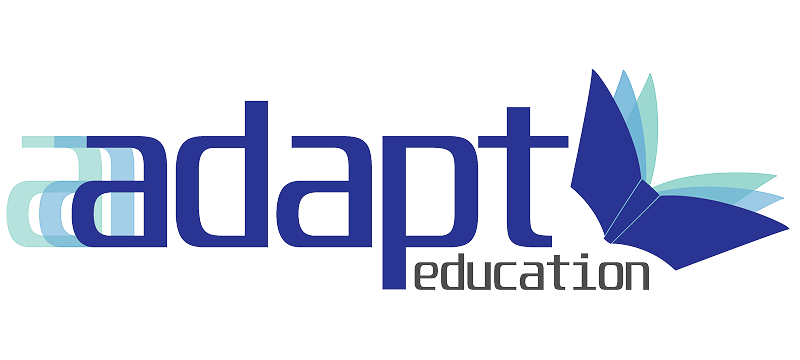Landing a teacher aide position is an exciting opportunity to support educators and make a positive impact on students. However, securing the job often requires more than just a passion for teaching—it requires a strong interview performance. In this post, we’ll walk through some key strategies and tips to help you excel in a teacher aide job interview.
Understand the Role and Responsibilities
Before the interview, take time to thoroughly research the teacher aide role. Teacher aides support classroom teachers by helping with lesson plans, student management, administrative tasks, and one-on-one student support. Some roles may also require assisting with special education students or specific learning needs.
| Example |
|
During an interview, you might be asked, “What do you think are the most important responsibilities of a teacher aide?” You could answer: |
You could answer:
“I believe a teacher aide plays a crucial role in ensuring the smooth operation of the classroom. By assisting with lesson preparation, managing classroom materials, and providing one-on-one support to students who need extra help, I can help create a positive, productive learning environment.”
Highlight Relevant Skills and Experience
Think about your past experiences—whether in education, childcare, volunteering, or any position that involved working with children or in a team environment. Skills such as patience, communication, behaviour management, flexibility, and organisation are highly valued in this role.
| Example |
| If you have experience volunteering in a school or tutoring students, share specific examples that highlight your skills. You could say: “In my previous role as a volunteer tutor, I worked one-on-one with students to improve their reading skills. I used a variety of engaging activities and tailored my approach to meet the unique needs of each student.” |
Prepare for Common Interview Questions
You will likely be asked some general questions about yourself. These questions will be attempting to uncover your values, strengths and weaknesses. In some part, these questions are designed to get you talking and to feel more relaxed, but don’t forget to keep your responses relevant to the job role. Some questions might include:
- What inspired you to become a teacher aide?
- What would you say your top three character attributes are?
- Which of your skills do you think will be most useful in this role?
- What do you think are your main weaknesses?
Expect questions that test your understanding of the role, your behavior in various situations, and how you work with students. Here are some common questions you might encounter:
- How would you handle a disruptive student in the classroom?
- Can you describe a time when you worked as part of a team?
- How do you ensure students feel supported and encouraged?
| Example |
| For the question about handling a disruptive student, you might respond: “Prior to being in the situation I would ensure that I clearly understand the schools behaviour management policies and procedures as these are key to ensuring I respond in the correct way. When dealing with a disruptive students, I would first assess the situation and remain calm. If a student is acting out, I’d try to understand the underlying issue—whether it’s boredom, frustration, or something else. I’d gently redirect their attention to the task at hand and offer positive reinforcement when they make progress. Communication with the teacher would be key to ensure we address the issue collaboratively.” |
Show Your Passion for Working with Children
Employers want to hire teacher aides who are genuinely passionate about supporting students. Make sure to communicate why you’re interested in working with children and helping them succeed. Share personal anecdotes or specific moments that inspired your interest in education.
| Example |
| “I’ve always loved working with children, and I find it rewarding to see them grow academically and emotionally. My experience as a camp counselor reinforced my desire to help kids overcome challenges and build confidence in themselves.” |
Demonstrate Strong Communication Skills
As a teacher aide, you will need to communicate clearly with both students and educators. Show the interviewer that you can explain ideas simply, listen actively, and ask questions when you need clarification. Effective communication will help you be a reliable and approachable team member.
| Example |
| If asked how you would communicate with a teacher about a student’s progress, you could say: “I believe clear and open communication is essential. I would keep the teacher updated on how students are responding to activities and any concerns I might notice. I’d also ask for feedback on how I can improve my support in the classroom.” |
Ask Questions to Show Your Interest
At the end of the interview, you’ll likely have a chance to ask questions. This is an excellent opportunity to show your interest in the school or district and demonstrate that you’ve done your homework. Ask thoughtful questions that show you’re invested in the position.
| Example Questions |
These questions show that you are eager to understand the dynamics of the school environment and your potential role within it. |
Emphasize Flexibility and Adaptability
Teacher aides often have to juggle multiple tasks and adapt to various classroom environments. Whether it’s helping with special education students, assisting with lunch or recess duties, or stepping in for an absent teacher, flexibility is key to success in this role.
| Example |
| You might be asked about a time you had to adapt to a challenging situation. You could respond: “In my previous job as an after-school program coordinator, we had to quickly adjust plans when we lost a key staff member. I stepped in to cover a range of activities and helped students transition smoothly to the new schedule. This experience taught me how to think on my feet and remain calm in unpredictable situations.” |
Dress Professionally and Be Punctual

First impressions matter, so make sure to dress appropriately for the interview. While you don’t need to wear a suit, aim for business casual attire that looks polished and professional. Additionally, arrive on time (or a few minutes early) to show your reliability and punctuality.
Follow Up After the Interview
After your interview, send a thank-you email to express your gratitude for the opportunity and reiterate your enthusiasm for the role. A thoughtful follow-up can leave a positive lasting impression.
| Example |
| “Thank you for taking the time to meet with me today. I am very excited about the opportunity to contribute to your team and support students in the classroom. I look forward to the possibility of working with you and helping students achieve their full potential.” |
Conclusion
A teacher aide job interview is your chance to showcase your passion for education, your relevant skills, and your ability to support both students and teachers effectively. By preparing thoughtfully, demonstrating strong communication skills, and showing your enthusiasm for the role, you can make a lasting impression and increase your chances of landing the job. Good luck!
| Your Next Steps |
| download our Top 15 Interview Questions and Responses for a Teacher Aide Job Interview Find out more about our Teacher Aide Courses Read: How to Write a Great Resume and Cover Letter for a Teacher Aide Read: How to start a career as a Teacher Aide |
Free Resources

How to Nail the Job Interview for a Teacher Aide
Landing a teacher aide position is an exciting opportunity to support educators and make a positive impact on students.

How to Write a Great Resume and Cover Letter for a Teacher Aide
In this article we look at the components of a quality resume and we provide a downloadable resume template for a Teacher Aide.

Support Strategies for Children with Dyscalculia
Dyscalculia is a specific learning difficulty that affects a child’s ability to understand, process, and work with numbers.


